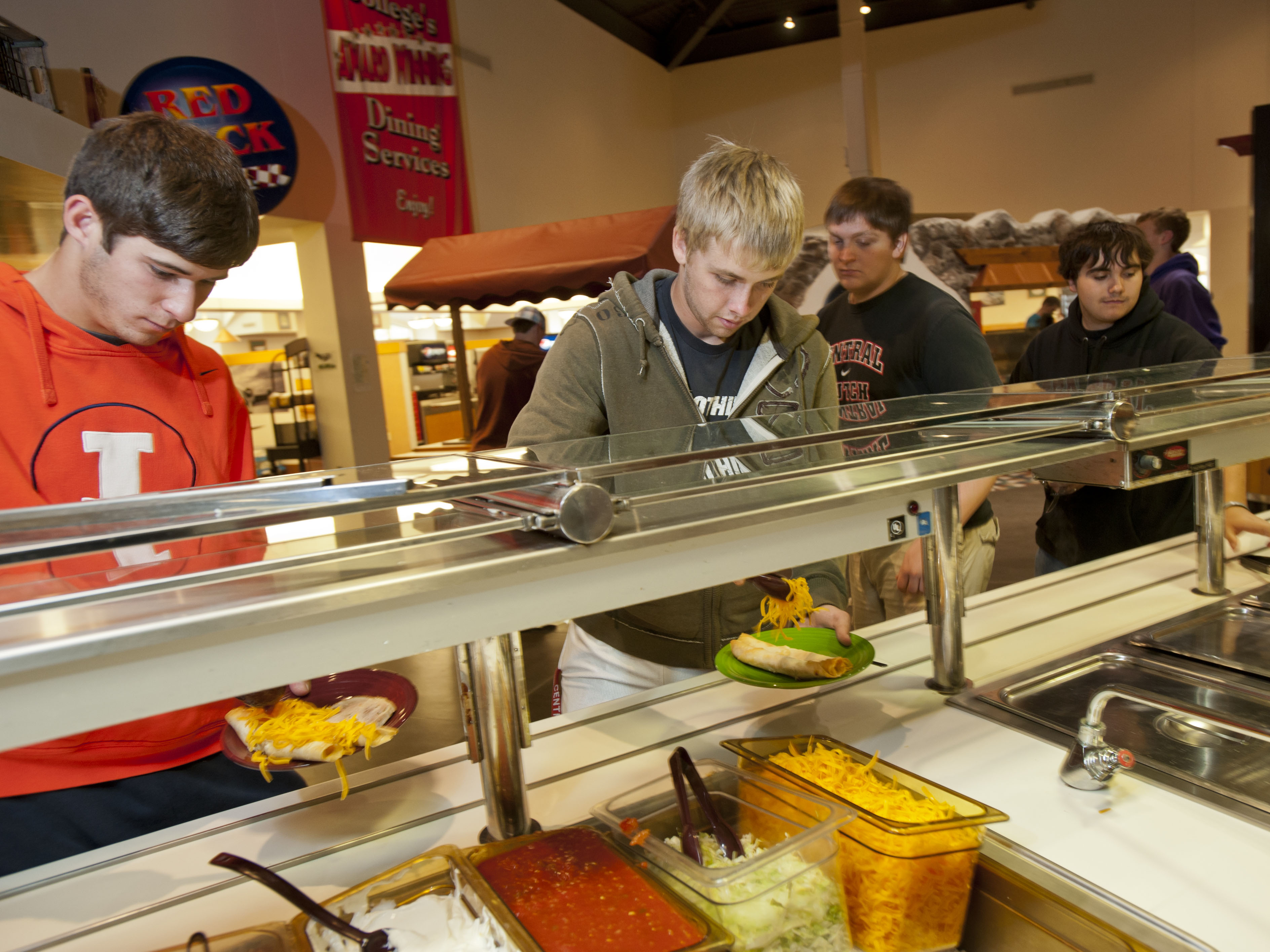College students eat a lot. But, still, their eyes are often bigger than their stomachs. Fortunately, Central College has a system to prevent 1,500 pounds of wasted food from going into local landfills each week.
For 18 years, Central has been using a commercial-grade pulper to mash food waste and divert it from landfills. The machine is breaking down, and the college has received a $20,000 grant from the Iowa Department of Natural Resources to replace it.
“We pitched it as a way to insure that Central continues our tradition of modeling sustainability for our students, as well as the greater community,” says Mike Lubberden, director of facilities planning and management.”
The 31,000-square-foot Central Market was built in 1995 and serves 2,000 meals a day, which totals more than 500,000 meals a year for students, faculty, staff and visitors. The commercial-grade pulper, which was purchased when the Market opened, has been repaired many times in the past year. The Soild Waste Alternative Program (SWAP) grant from the DNR will cover the purchase of a new, state-of-the art pulper to arrive in early summer.
 “’Going green’ is not a new venture for us but one that will continue the reputation and tradition that Central College has for being environmentally responsible stewards,” wrote Val Van Kooten, grant writer, in the proposal for the Central Waste Reduction Project.
“’Going green’ is not a new venture for us but one that will continue the reputation and tradition that Central College has for being environmentally responsible stewards,” wrote Val Van Kooten, grant writer, in the proposal for the Central Waste Reduction Project.
The pulper is just one aspect of Central’s sustainability initiatives, which include energy-efficient vehicles, LEED-certified buildings, recycling, water conservation and renewable energy. All food thrown away by Central Market customers or left over in the food preparation process is fed into the pulper, which extracts and filters the processed water and recycles it as rinse water. The pulp is then funneled into biodegradable bags, which are removed to a composting facility in Eddyville, Iowa. Central saves 47 tons of post-consumer food waste per year from area landfills by using the pulper.
Within a few years, Central hopes to purchase two dehydrators, which will turn the pulp into a fluffy, sawdust-like material that can be spread as fertilizer on campus athletic fields, gardens and flower beds. These dehydrators could not be purchased without first replacing the pulper.
The commercial-grade pulper requires much less water than a traditional garbage disposal system. Central estimates that it saves an estimated 2.2 to 3.2 million gallons of water per year by using the pulper. According to the City of Pella Water Department, this is equal to more than $12,000 in savings in water bills and wastewater treatment fees per year.
 Mark Howard, director of dining services, explains that Central Market puts enormous effort into being as efficient and sustainable as possible. Last year, in partnership with a marketing class, Central Market instituted Trayless Tuesdays. They found that 40 percent less food was being dumped on Tuesdays compared to other days of the week. So, starting in the fall of 2012, Central became a Trayless Campus.
Mark Howard, director of dining services, explains that Central Market puts enormous effort into being as efficient and sustainable as possible. Last year, in partnership with a marketing class, Central Market instituted Trayless Tuesdays. They found that 40 percent less food was being dumped on Tuesdays compared to other days of the week. So, starting in the fall of 2012, Central became a Trayless Campus.
Howard says the Market also recycles all its cardboard, metal cans, glass and frying oil. In addition, compost is gathered from 12 different dump sites around campus to be used in Central’s organic garden. Nearly all of that produce makes its way back to dishes in Central Market.
It was this commitment to sustainability that led the Department of Natural Resources to award Central the grant for the new food pulper. As Van Kooten put it in the grant:
“The college has been a leader in implementing pre-consumer food waste among Iowa colleges and universities, and will again emphasize Central College’s commitment to the ‘green bottom line.’”



